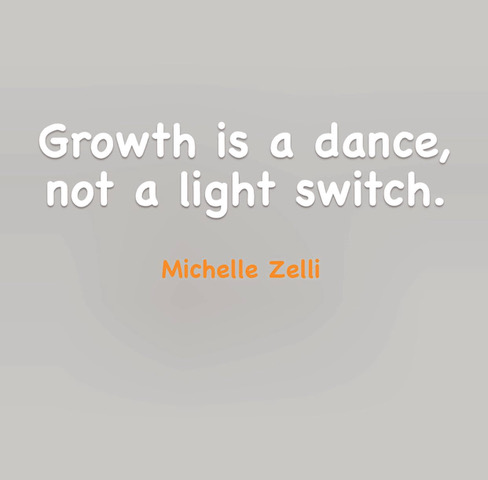Whether you feel twitchy without it or are constantly lighting up your screen to check for new notifications, you could well be addicted.
Even tech companies like Apple are releasing new features like Screen Time, as unveiled at their annual conference, to try and tackle mobile device addiction after studies have reported finding chemical imbalances in the brains of smartphone-addicted teens.
The idea is to help users organize limited access for themselves if they want to cut down.

But, will that actually work or will we just override the software? How many times do you pick up your phone? And is it verging on obsession?
We asked the experts their thoughts on when a habit becomes a real problem.
You Have Actual Chemistry With Your Phone
“It’s a neurochemistry thing,” licensed psychotherapist Noel McDermott, who specializes in addiction, tells us.
“Do you feel a certain chemistry between you and your phone; do you smile at the thought of it; does looking at it make you feel better, does a quick peek give you a pick me up; do you feel anxious and worried if you haven’t checked something on it for a while?

“Besides being devilishly useful, smart phones are also ‘blue screen’ devices. Like all blue screen devices, they get our brains, and in particular our frontal lobes, all excited! But, it may be time for a break-up,” McDermott admits.
If you rely on your phone for an endorphin rush while bored at work, for example, try getting up to speak to a colleague you get on with instead.
You Double Screen
International life coach Michelle Zelli, AKA ‘The Real Fairy Godmother’, reveals that over 30% of us are reported to be using another screen while watching TV or on our laptops, according to the Google Consumer Barometer Report.
The average person [is] reported to be checking their phone between 50 and 100 times every single day
With the average person reported to be checking their phone between 50 and 100 times every single day, depending on which study you look at, it’s no wonder the term ‘nomophobia’ (mobile addiction) has become so embedded in our society.
You’re Constantly Multitasking
Also known as mindless phone checking.
“Do you think about it a lot? While that’s fine with the one you love, noticing the same behavior with a smart phone isn’t as good for you, and in fact is probably a sign you have a significant problem.
Do you invent reasons to pick up your phone? If the answer is yes, that’s a problem

“Ask yourself, do you invent reasons to pick up your phone? If the answer is yes, that’s a problem,” McDermott sternly tells us.
It’s The First Thing You Touch
Do you prioritize checking your messages over kissing your loved ones first thing? Do you switch it on before even having a stretch?
Becoming anxious when you can’t see your phone are… signs of withdrawal
According to relationship expert and author Marianne Vicelich, this may be an indication that you are addicted.

“Spending more time on your phone and becoming anxious when you can’t see your phone are all signs of withdrawal symptoms,” she tells us.
It Causes Actual Pain
“Find yourself with eye strain, stiff neck (text neck) or do you keep bumping into things while walking with the phone, had a car accident or near accident whilst texting etc?” asks McDermott.

“Well, these are called consequences, and in addiction counseling, it’s the first thing we look for to see if the ‘using’ has moved beyond normal into unhealthy.”
And considering that eye strain is now commonplace, and most people are having to adjust the light or wear glasses to help with the screen appearing blurry, it seems like we’re all suffering the repercussions.
You Get Complaints About It
Marianne warns against the consequences of the people around you commenting on and complaining about how much time you spend on your phone.
Are you compelled to check your social media, WhatsApp messages, and texts the moment they pop up on your phone, regardless of what you’re doing or whom you’re doing it with?

If so, yes, this is incredibly annoying. Take our advice and live in the moment (insert hippy quote here.)
It’s Taken The Place Of A Romantic Partner
One in five adults have actually used their phones during bedroom antics according to a survey conducted by Harris Interactive. While that’s all well and good, if you’ve stopped looking for a partner because your phone is an easier escape, that’s a serious red flag.
“While [this] might be [a] fun addition to a sex life, is this what it consists of to a large extent? If it is, you’ve got a problem,” says McDermott.

It might be time to rethink our phones-in-the-bedroom policy…
You Get (PH)OMO
Try turning off all notifications for an hour – your goal is to not look at your phone once.
“If you can’t walk away, then there’s a problem,” McDermott tells us.

“You should be in control of the phone, not it in control of you. Just the same with any unhealthy relationship, you need to be able to put yourself first and leave. If you can’t it isn’t love, it’s addiction.”
FOMO and anxiety when you’re not with your phone? That’s called withdrawal.
Life coach Michelle Zelli sees people turn to their mobile phones when feelings of anxiety or depression begin to surface. If you’re using it as your mobile therapist, you might want to upgrade to a real one.

You Lose Sense Of Time
If you’re the kind of person who finds themselves in black holes where you’re screen surfing and all of a sudden it’s 2AM and you’ve landed on your ex ex boyfriend’s ex girlfriend’s best friend’s Instagram profile, you may want to take a time out.
You Lose Sleep
Is your screen the last thing you see at night?

One in three people check their phones in the middle of the night, research from consultancy firm Deloitte found. The study was conducted in the UK, surveying 4,000 people and concluded that 50% of 18-24-year-olds check their phone during the night.
“It’s no surprise that screen addiction clinics are popping up faster and faster these days. Nomophobia is real for many people!” Zelli says.
You Get Physical Withdrawal
“A powerful example of this is from The World Unplugged Experimentconducted last year at Maryland University and collaborating with 12 universities across the globe,” Zelli explains.
“After 24 hours of no screens, the majority of participants said they felt like they were trying to kick a hard drug habit.
“With each buzz or bleep from your phone comes a surge of pleasure and reward – AKA a release of dopamine (the feel-good chemical) in the neurotransmitter receptors in your brain’s reward center.

“The more you use, the higher your levels of dopamine. Your brain sends a message that this is a good activity. And of course, you won’t want to stop and will find it increasingly difficult to tear yourself away from your digital fix.”
You Neglect Safety
Even though it’s illegal, a lot of people engage in phone action in their car (despite it putting you, and others, in extremely dangerous situations).
42% of those who entered traffic during a ‘Don’t Walk’ signal were talking on a cell phone
A 2010 study by the Pew Research Center said nearly half of US adults admit reading or sending a text message while driving. The news is worse for teens: Nearly one in three 16- or 17-year-olds said they have texted while driving.
“Did you know that 26% of all car accidents are now attributed to phone use?” Zelli states.

And it’s not just driving. A study of pedestrians in midtown Manhattan found that 42% of those who entered traffic during a “Don’t Walk” signal were talking on a cell phone, wearing headphones or looking down at an electronic device.
Scary stuff.
You Break The Rules
If you’re putting a relationship or even a job at risk by using your phone against employee guidelines (or your loved one’s request), you’re headed down a dark road.

You Hear Phantom Sounds
Convinced you felt your phone vibrate? It could just be your mind looking for an excuse to check your mobile.
So, if you’ve realised you may be addicted, take Dr Mark Winwood, Director of Psychological Services for AXA PPP healthcare‘s advice: ‘There can be big benefits to taking some time away from technology and if you’re considering it, try suspending your social media accounts for a week (it means you can take a break without the temptation to check for any new notifications)”
“Also make an effort to meet with friends face-to-face,” he suggests.

Alongside all that, he also advises to get an alarm clock because using your phone as an alarm can make it tempting to automatically check the online scene the minute you’re getting up. Having a separate alarm clock removes that temptation.
“And if you find you crave social media, try checking out apps designed to block certain sites at certain times of the day. This helps to avoid that mindless checking and re-checking we all fall victim to!”





